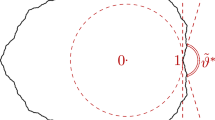In this paper, we study a special case of the Metropolis algorithm, the Independence Metropolis Sampler (IMS), in the finite state space case. The IMS is often used in designing components of more complex Markov Chain Monte Carlo algorithms. We present new results related to the first hitting time of individual states for the IMS. These results are expressed mostly in terms of the eigenvalues of the transition kernel. We derive a simple form formula for the mean first hitting time and we show tight lower and upper bounds on the mean first hitting time with the upper bound being the product of two factors: a “local” factor corresponding to the target state and a “global” factor, common to all the states, which is expressed in terms of the total variation distance between the target and the proposal probabilities. We also briefly discuss properties of the distribution of the first hitting time for the IMS and analyze its variance. We conclude by showing how some non-independence Metropolis–Hastings algorithms can perform better than the IMS and deriving general lower and upper bounds for the mean first hitting times of a Metropolis–Hastings algorithm.
Similar content being viewed by others
References
Abadi M., Galves A. (2001). Inequalities for the occurrence times of rare events in mixing processes. The state of the art. Markov Proc. Relat. Fields 7, 97–112
Bremaud P. (1999). Markov Chains: Gibbs Fields, Monte Carlo Simulation and Queues, Springer, New York
Diaconis P., Hanlon P. (1992). Eigen analysis for some examples of the Metropolis algorithm. Contem. Math. 138, 99–117
Hastings W.K. (1970). Monte Carlo sampling methods using Markov chains and their applications. Biometrika 57, 97–109
Kemeny J.G., Snell J.L. (1976). Finite Markov Chains, Springer Verlag.
Liu, J. S. (1996). Metropolized Gibbs Sampler: An Improvement, Technical report, Dept. Statistics, Stanford Univ.
Liu J.S. (1996), Metropolized independence sampling with comparisons to rejection sampling and importance sampling. Stat. Comput. 6, 113–119
Mengersen K.L., Tweedie R.L. (1994). Rates of convergence of the Hastings and Metropolis algorithms. Ann. Stat. 24, 101–121
Mira A. (2002). Ordering and improving the performance of Monte Carlo Markov Chains. Stat. Sci. 16, 340–350
Smith, R. L., and Tierney, L. (1996). Exact Transition Probabilities for Metropolized Independence Sampling, Technical Report, Dept. of Statistics, Univ. of North Carolina.
Tu, Z. W., and Zhu, S. C. (2006). Parsing Images into Regions, Curves, and Curve Groups. Int. J. Comput. Vision (accepted).
Author information
Authors and Affiliations
Corresponding author
Rights and permissions
About this article
Cite this article
Maciuca, R., Zhu, SC. First Hitting Time Analysis of the Independence Metropolis Sampler. J Theor Probab 19, 235–261 (2006). https://doi.org/10.1007/s10959-006-0002-9
Received:
Revised:
Published:
Issue Date:
DOI: https://doi.org/10.1007/s10959-006-0002-9



